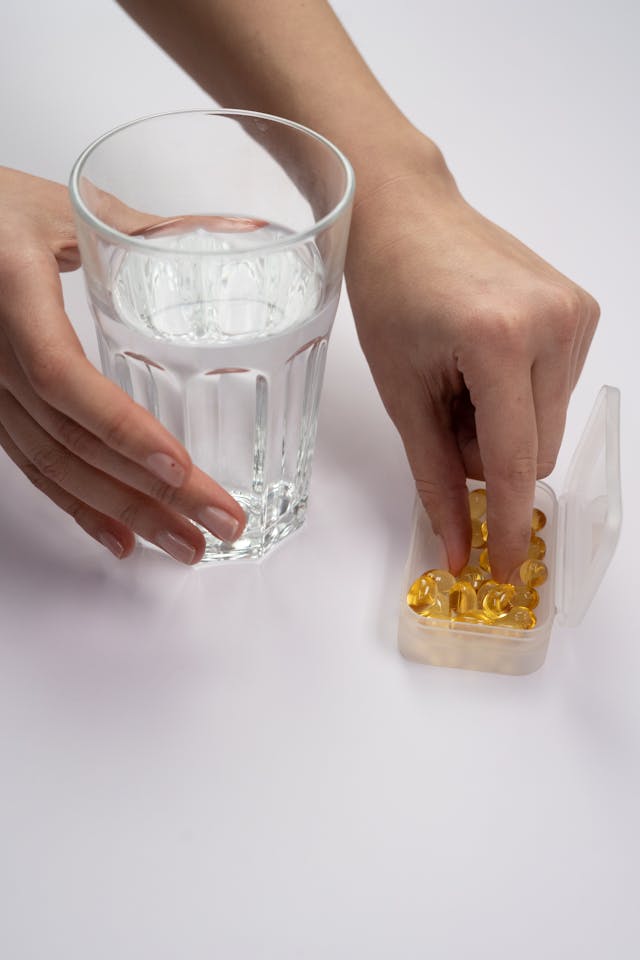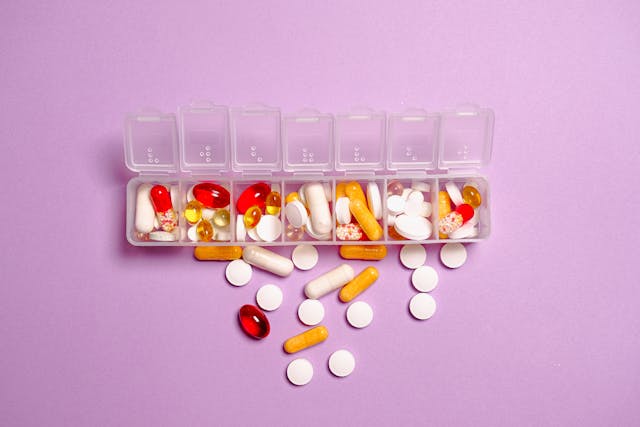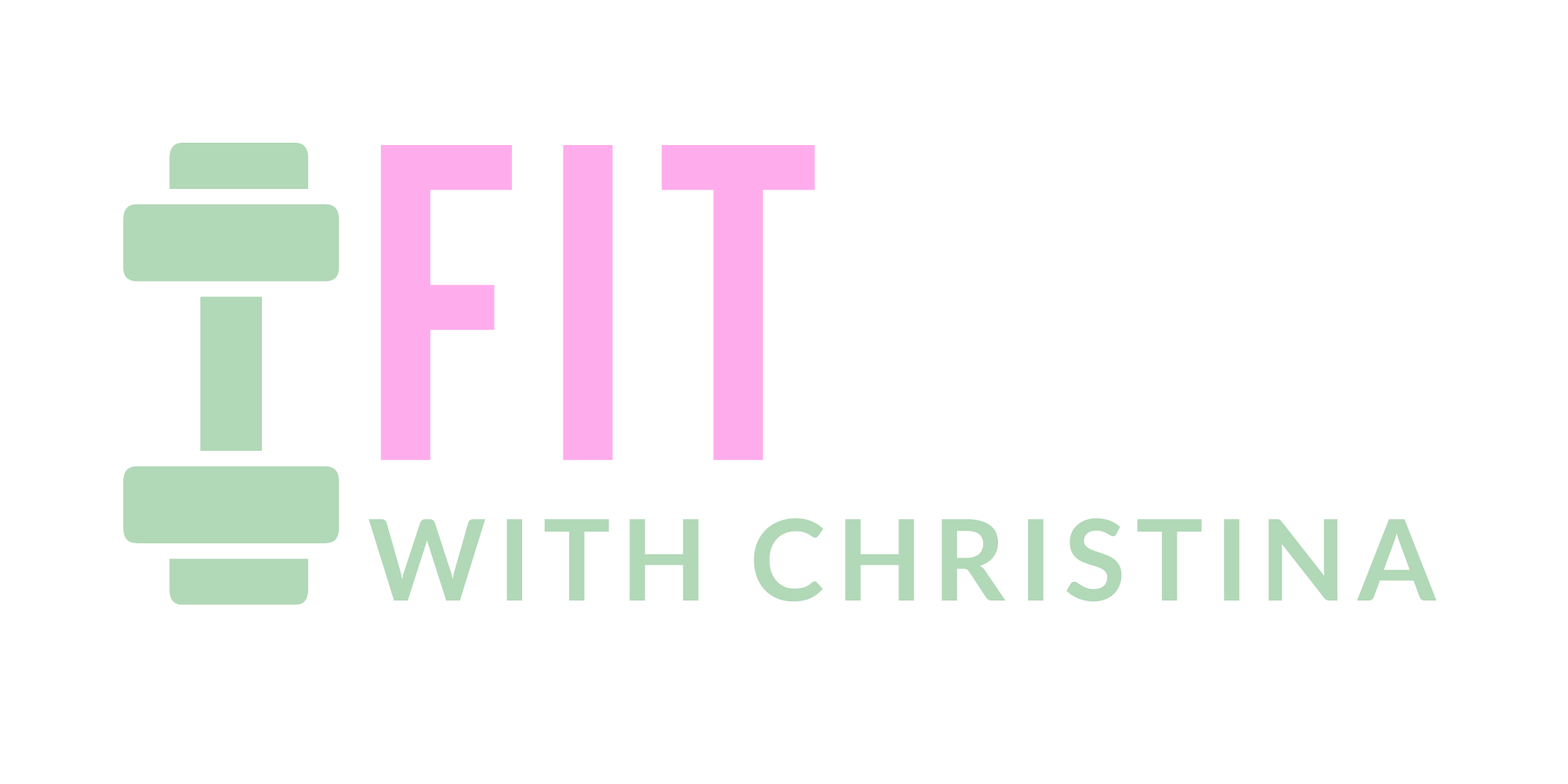Maintaining optimal health requires a balanced intake of essential vitamins and minerals. as well as adequate amounts of protein (25-30 grams per meal) and fiber (25 grams per day). I personally think that Vitamin D and Magnesium are particularly important and I take additional supplementation. I always suggest to check in with your pharmacist or physician before taking any supplements. This will avoid any issues with prescriptions you may be currently taking or the timing of taking the medications and supplements. Always better to be safe before taking anything! Here are some of the key vitamins and minerals that are particularly important for women, along with their benefits and food sources.

1. Vitamin D:
◦ Helps with calcium absorption, bone health and immune function.
◦ Foods: Fatty fish (salmon, mackerel), fortified dairy or plant-based milk, fortified cereals, eggs, and sunlight exposure.
2. Magnesium:
◦ Supports bone health, muscle function, and energy production.
◦ Foods: Nuts (almonds, cashews), seeds (pumpkin seeds, sunflower seeds), whole grains (brown rice, oats), leafy green vegetables, beans, and lentils.
3. Calcium:
◦ Important for bone health, preventing osteoporosis, muscle function, and nerve signaling.
◦ Foods: Dairy products (milk, cheese, yogurt), tofu, almonds, leafy green vegetables (kale, spinach), fortified plant milks.
4. Vitamin K:
◦ Essential for bone health and blood clotting.
◦ Foods: Leafy green vegetables (spinach, kale, Swiss chard), broccoli, Brussels sprouts, fermented foods (sauerkraut, kimchi, pickles) , and parsley.
5. Omega-3 Fatty Acids:
◦ Helps reduce inflammation and supports heart and brain health.
◦ Foods: Fatty fish (salmon, trout, sardines), flaxseeds, chia seeds, walnuts, and algae-based supplements.
6. Vitamin B12:
◦ Important for nerve function and energy production.
◦ Foods: Animal products (meat, fish, dairy), fortified cereals, nutritional yeast, and B12 supplements for those on a plant-based diet.
7. Folate (Vitamin B9):
◦ Supports DNA synthesis and cell repair.
◦ Foods: Dark leafy greens (spinach, kale), legumes (beans, lentils), avocado, citrus fruits, fortified cereals, and whole grains.
8. Vitamin C:
Supports the immune system, skin health, collagen production, enhances iron absorption
Foods: Citrus fruits, strawberries, bell peppers, kiwi, and broccoli.
9. Iron:
Supports the immune system, skin health, and collagen production; also enhances iron absorption.
◦ Essential for oxygen transport in the blood and energy production, preventing anemia
◦ Foods: Red meat, poultry, fish, beans, lentils, tofu, spinach, fortified cereals, and dried fruits (apricots, raisins).
10. Zinc:
◦ Supports immune function and helps with wound healing.
◦ Foods: Oysters, red meat, poultry, beans, nuts (cashews, almonds), whole grains, and dairy products.
11. Probiotics:
◦ Promote gut health and support immune function.
◦ Foods: Yogurt with live cultures, kefir, sauerkraut, kimchi, miso, tempeh, and probiotic supplements.

Tips for Ensuring Adequate Intake
Ensuring adequate intake of these key vitamins and minerals can support overall health, prevent deficiencies, and address specific health needs for women at different life stages. Here are some additional tips and considerations for optimum health:
- Balanced Diet: Focus on a varied diet that includes plenty of fruits, vegetables, whole grains, lean proteins, and healthy fats.
- Supplement Wisely: If you have dietary restrictions or specific health needs, consider taking supplements. Consult with a healthcare provider to determine the right supplements and dosages for you.
- Stay Hydrated: Proper hydration supports the body’s absorption and utilization of these essential nutrients.
- Regular Check-ups: Regular medical check-ups and blood tests can help identify any deficiencies and allow for timely interventions.

